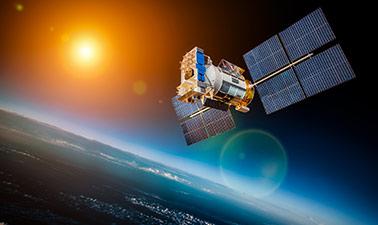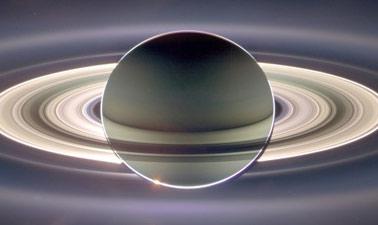What will I learn?
The online Earth sensing course (in its free or paid mode), Sensing Planet Earth – From Core to Outer Space, takes learners on a journey from the planet’s core to outer space, exploring the principles, techniques, and applications of sensing Earth’s various features. In this course, you will gain essential knowledge about Earth’s dynamic systems, environmental monitoring, and satellite-based observations.
Whether you’re a curious learner, a budding scientist, or a professional seeking to enhance your skills, this course is designed for you. No prior expertise is required, just bring your curiosity and enthusiasm. The course has a rigorous and didactic approach, which combines clear and simple explanations with examples and activities that will help you consolidate your learning. The course also offers you additional resources, such as readings, videos and links of interest, that you can consult to expand your knowledge and deepen the topics that interest you the most.
This course is available on the edX platform, one of the world’s most prestigious online education platforms, founded by MIT and Harvard University. It can be taken completely free of charge or for a small fee.
Contents of the online Earth sensing course, Sensing Planet Earth – From Core to Outer Space
These are the contents of the course:
- Introduction to Earth Sensing. Understand the significance of Earth observation and its impact on climate studies, disaster management, and resource monitoring. Explore the role of satellites, sensors, and ground-based measurements in collecting critical data.
- Earth’s Layers and Processes. Delve into the Earth’s core, mantle, and crust. Learn about plate tectonics, earthquakes, and volcanic activity. Understand how these processes shape our planet’s surface.
- Atmospheric Sensing. Uncover the secrets of Earth’s atmosphere. Study weather patterns, climate change, and air quality monitoring. Explore satellite-based remote sensing techniques for atmospheric studies.
- Hydrosphere and Oceans. Dive into oceanography and marine ecosystems. Investigate ocean currents, sea level rise, and coastal dynamics. Understand the importance of ocean health for our planet.
- Land Cover and Land Use. Analyze land cover changes due to urbanization, deforestation, and agriculture. Learn about land use planning, biodiversity assessment, and habitat conservation. Explore satellite imagery for land monitoring.
- Spaceborne Observations. Discover how satellites capture data across different wavelengths. Study multispectral and hyperspectral imaging. Gain insights into radar and LiDAR technologies.
- Applications and Case Studies. Witness real-world applications of Earth sensing. Explore case studies related to disaster response, agriculture, and environmental conservation. Learn how Earth observation contributes to sustainable development.
Paid or free Earth sensing course
The course has two modalities: free and paid. The free Earth sensing course, allows you to access all the content of the course, including the videos, the readings, the exercises and the discussion forums.
The paid modality also offers you the possibility of obtaining a verified certificate from edX, which accredits your participation and approval of the course. This certificate can be of great value for your curriculum vitae, as it demonstrates your interest and competence in Earth’s sensing. In addition, by paying for the course, you will be contributing to Chalmers University of Technology and edX being able to continue offering quality and accessible courses for everyone. If you want to know more about the cost and benefits of this modality, I invite you to visit the course page on edX, where you will find all the information you need.
In conclusion, the online Earth sensing course (in its free or paid mode), Sensing Planet Earth – From Core to Outer Space, allows you to unlock the secrets of our planet’s diverse landscapes and atmospheric phenomena. Join a global community of learners passionate about Earth science and contribute to our understanding of the world we inhabit.












